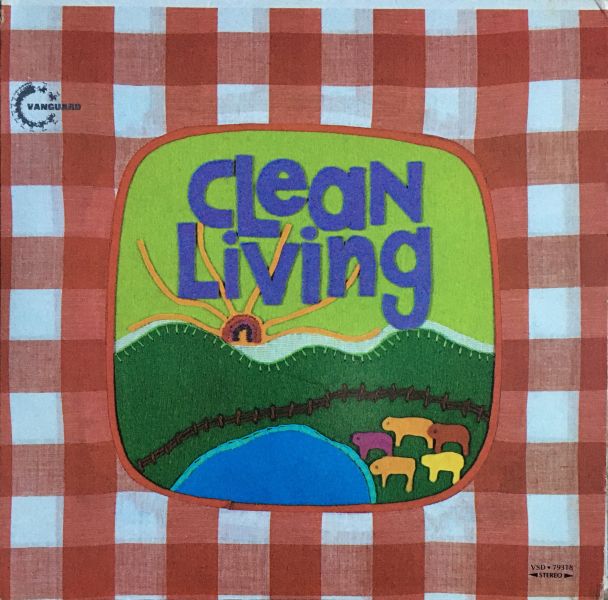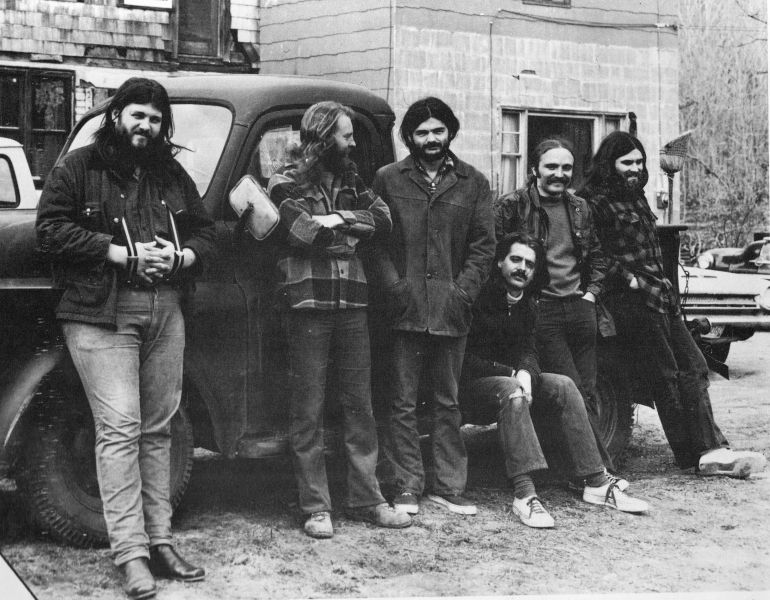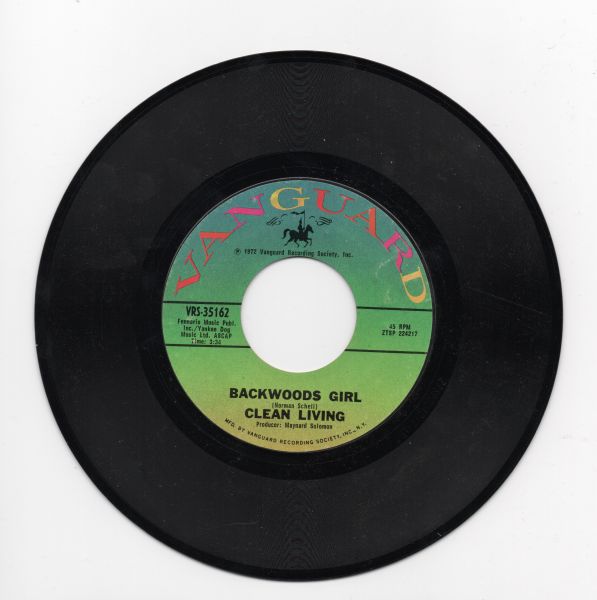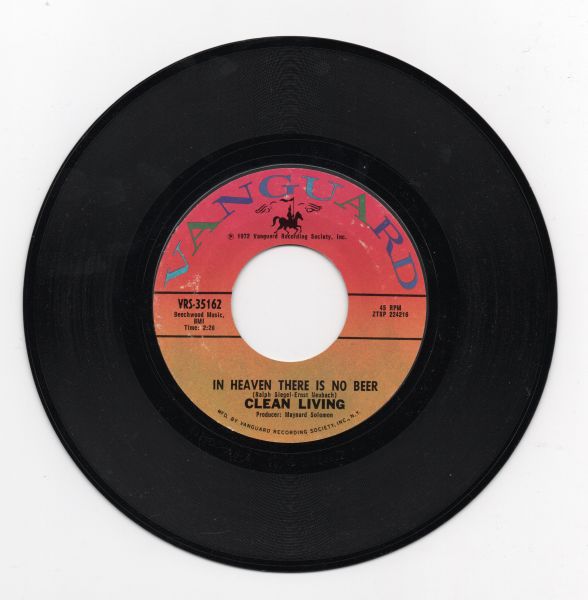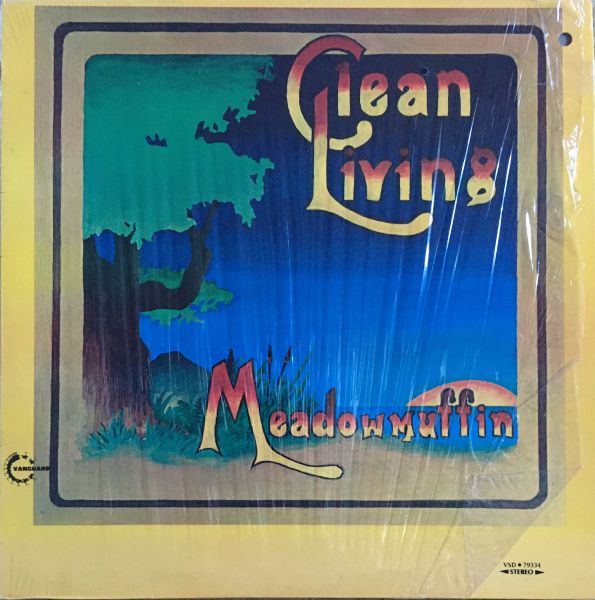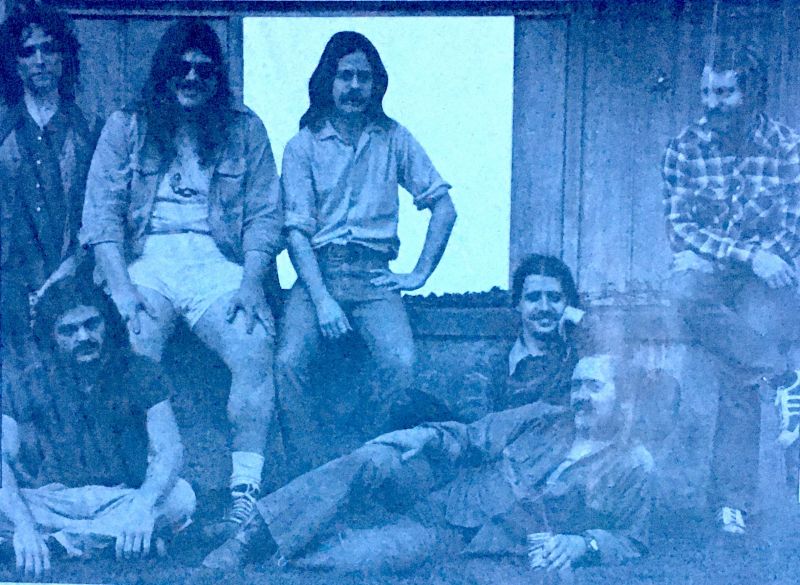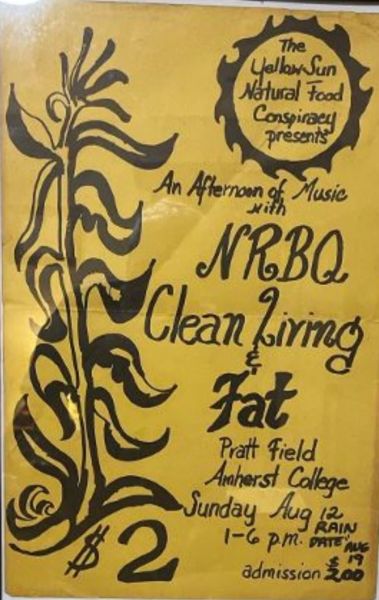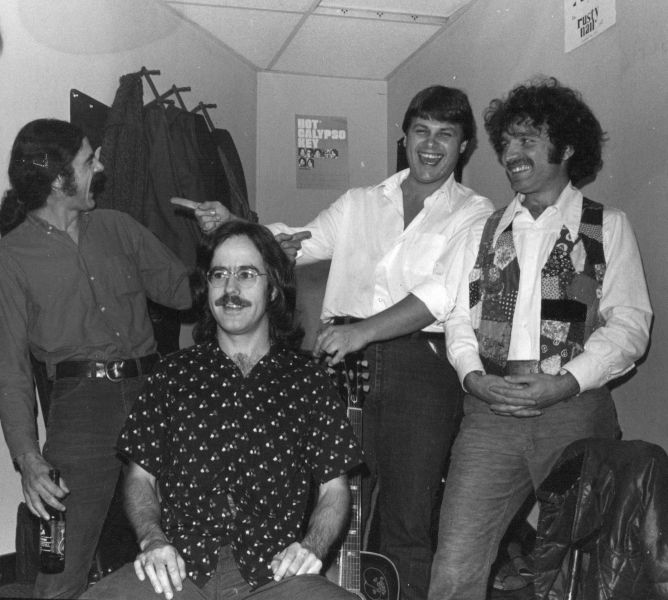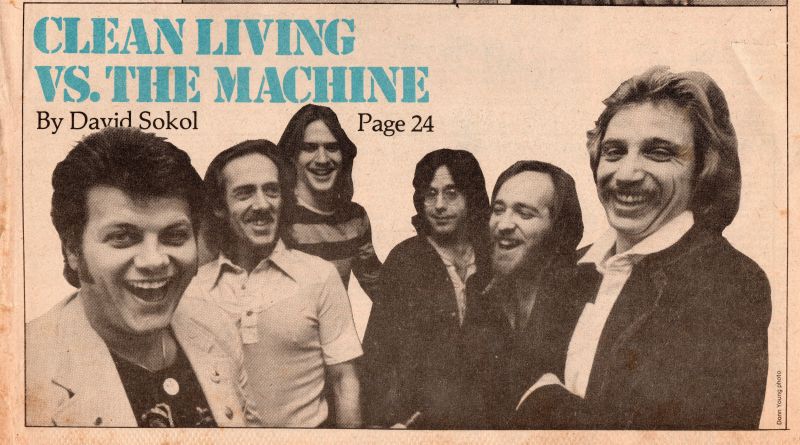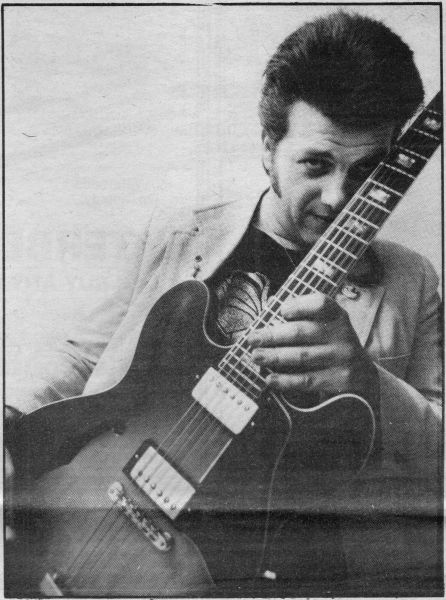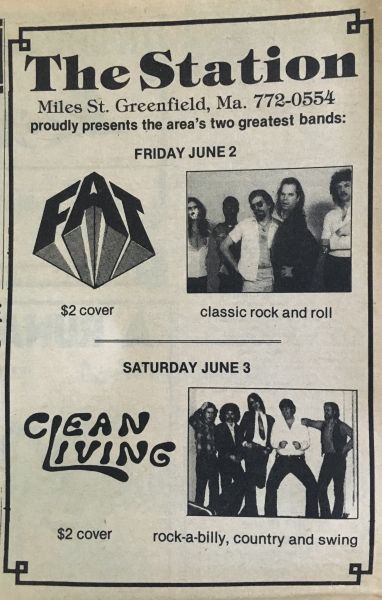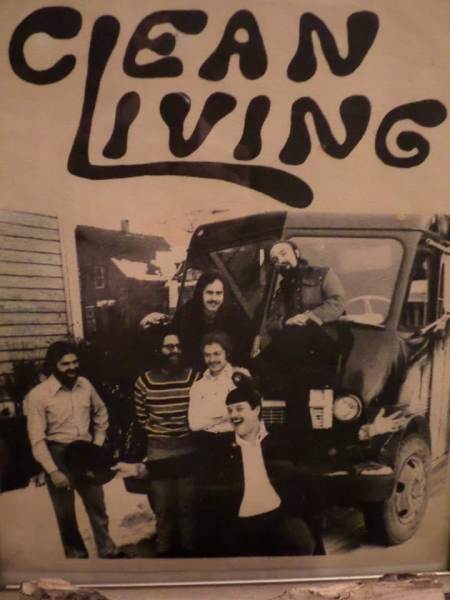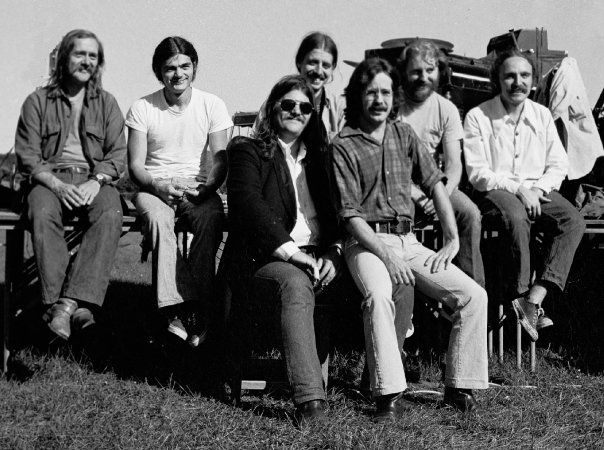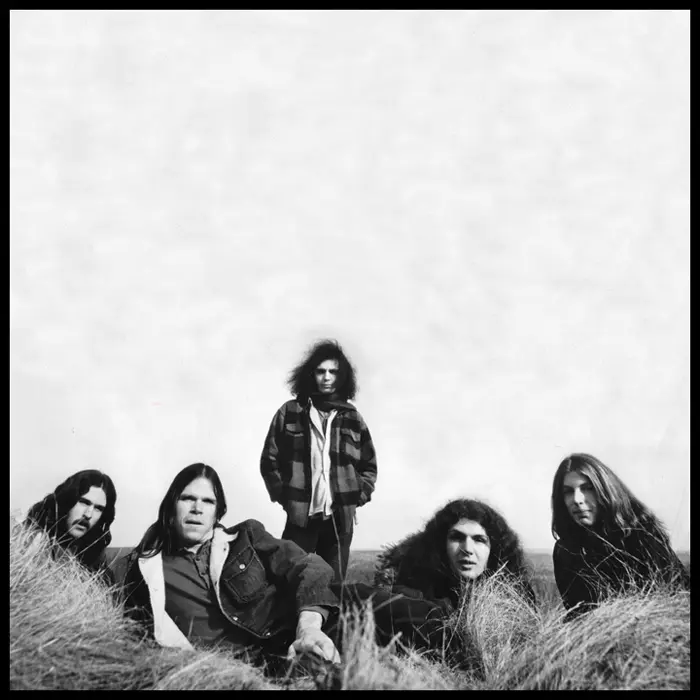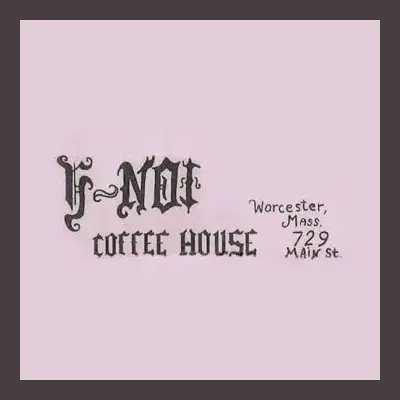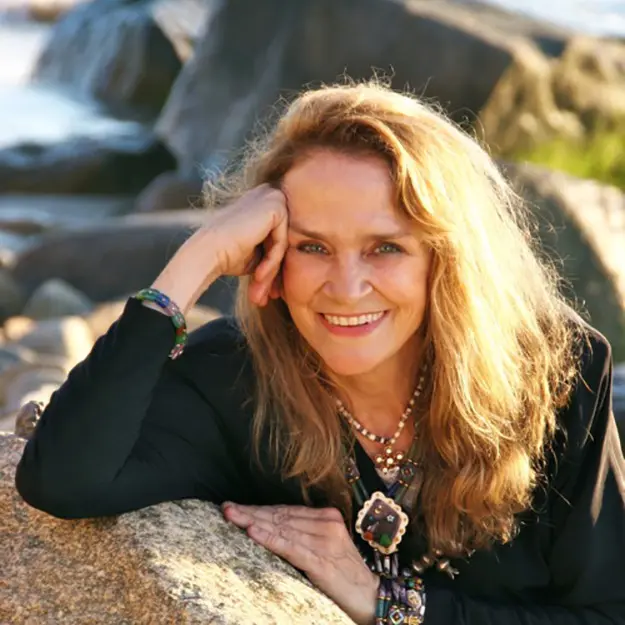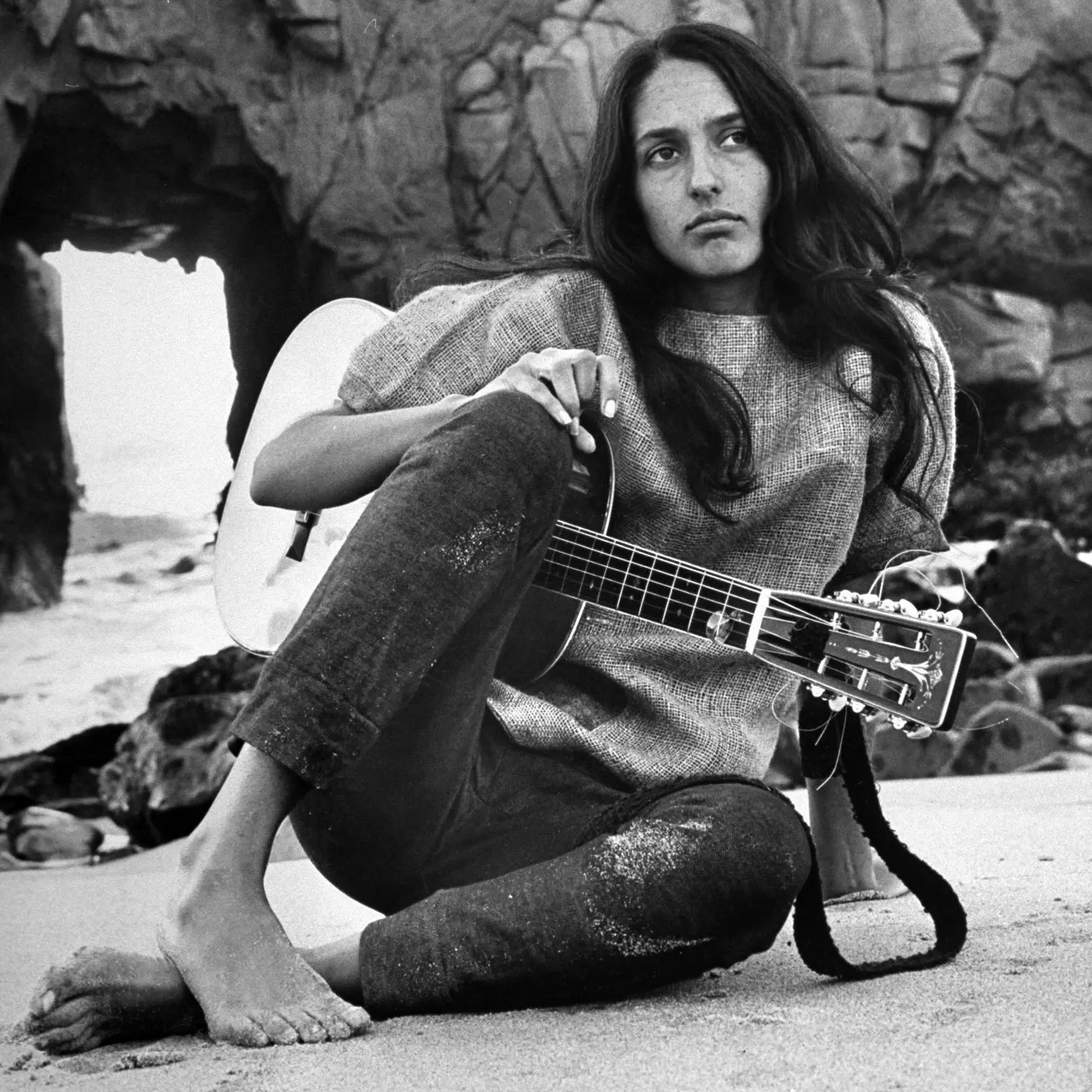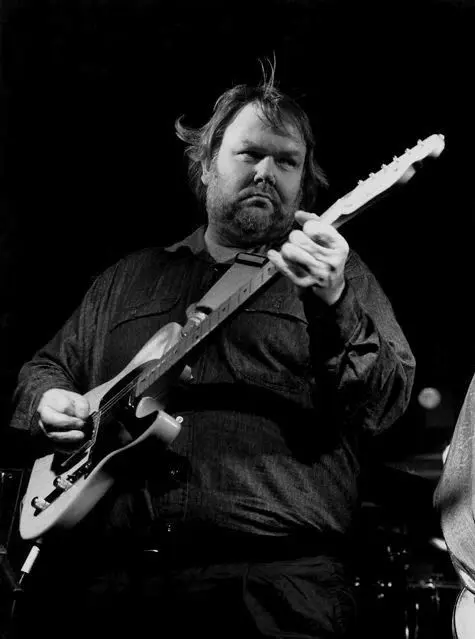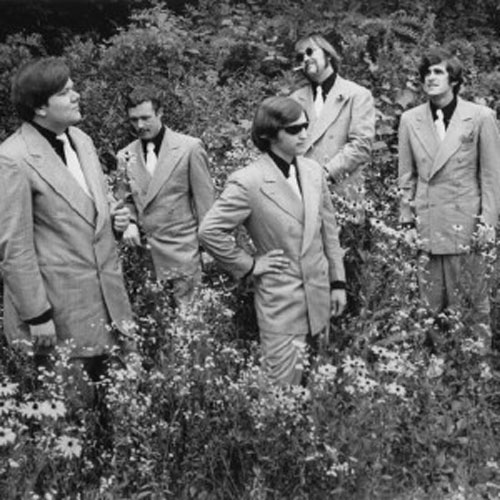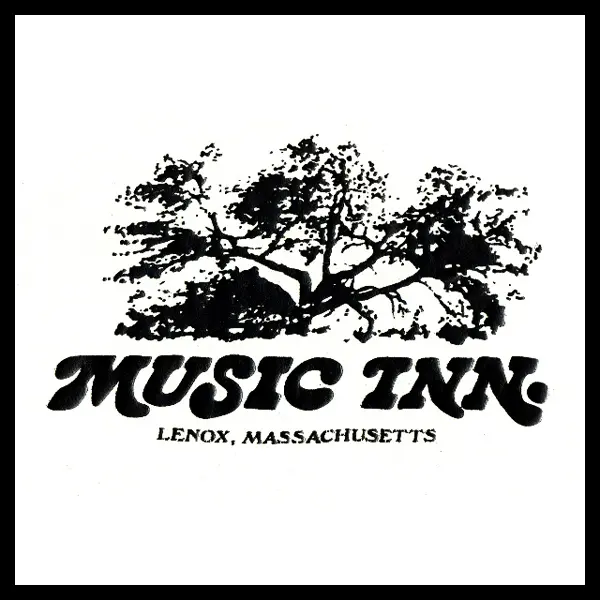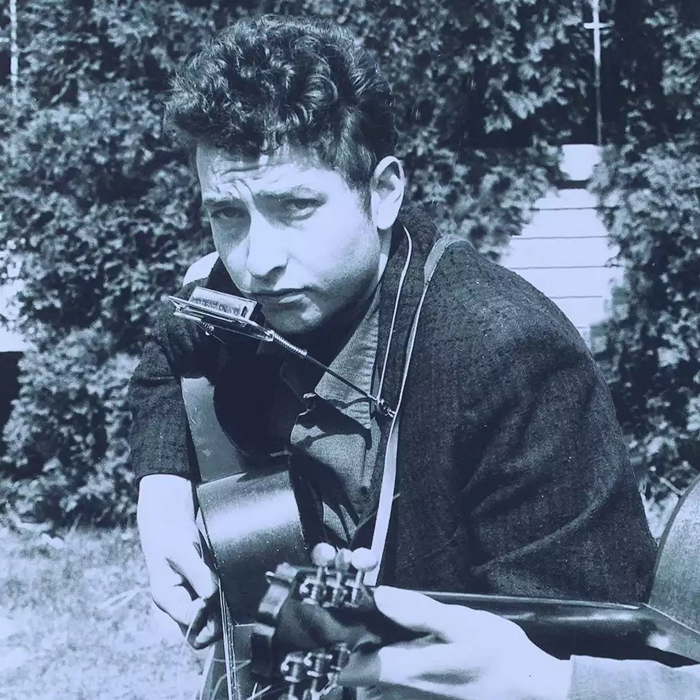Clean Living
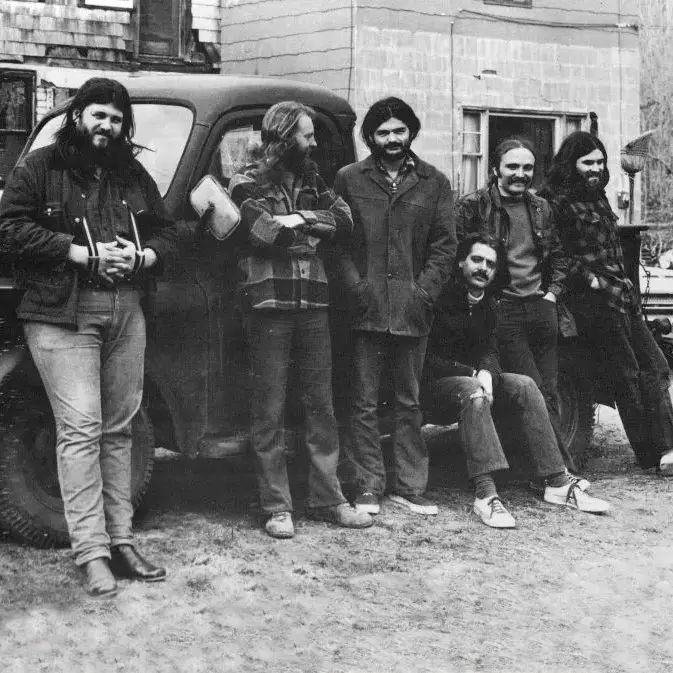
In the 1970s, Western Massachusetts was home to a thriving music scene, with dozens of working bands and all kinds of happening clubs and bars featuring live music all week long. Early in the decade, two tireless staples of the scene scored big-time recording contracts: bluesy rocking Fat, with RCA, and folksier country-rockers Clean Living with Vanguard. Clean Living even had a fluke, some say career-damaging, hit single that made it to #49 in Billboard’s Hot 100 in December 1972.
During their heyday, Clean Living evolved musically, despite personnel changes and the 1977 suicide of one of its earliest members. The frontman and primary songwriter, though, was always co-founder and guitarist/singer Norman Schell, and from the start, the six- (sometimes seven-) man band oozed originality and sophisticated songwriting.
FORMATION, EARLY PERFORMANCES, FOCUS ON ORIGINALS
Several members had been in various Amherst-area bands including Bold (who’d recorded a major-label album for ABC in 1969, produced by young Bill Szymczyk), and met Schell in Worcester through mutual friends. An impromptu performance by Schell, bassist Frank Shaw, drummer Tim Griffin and guitarist Robert “Tex” LaMountain at Worcester’s Y-Not Coffeehouse in ’69 was encouraging enough to convince them to consider working together.
They played their first bona fide dates as Clean Living in the summer of 1970 at Lenox’s Berkshire Music Barn. It was Schell’s first band, and the name Clean Living, inspired by W.C. Fields’ attributing his success to clean living and youth well spent, was his idea. It didn’t take long before the band began playing outdoor concerts at UMass and at Logs, a funky wine and beer bar in downtown Amherst, complete with sand on the floor. The place attracted hipsters, students and scantily clad hippie types, and by their third gig there, Clean Living were packing the place with their mix of newly minted Schell originals – including the introspective country-tinged “Backwoods Girl” – and upbeat covers of Berry and Dylan chestnuts.
But writing original material was a priority for Schell, who was becoming more prolific, joking that, “It’s easier to write my own song than try to learn yours.” There were any number of bands playing throughout the Pioneer Valley, but few played thoughtful, accessible original music, especially with a folk- or country-rock feel. Schell’s beautifully crafted songs started winning acclaim, and Clean Living stood out, building a sizable following. With the addition of keyboardist Elliot Sherman and electric-guitar whiz Bob La Palm (who’d played with Bold and Al Anderson’s Wildweeds), the lineup, its members now all living in Western Massachusetts, was complete.
VANGUARD SIGNING, DEBUT ALBUM, SINGLE
Anderson, who Schell calls “one of the great rock and roll guitarists,” had recorded an album for Vanguard with the Windsor, Connecticut-based Wildweeds in 1970 and he suggested that Clean Living audition for that label, which boasted the motto “Recordings for the Connoisseur” and had artists such as Joan Baez, Odetta and Country Joe and the Fish on its roster. Taking Anderson’s advice, they were quickly signed at Vanguard’s studio in Manhattan, with Schell’s hauntingly melodic “Jubals’ Blues Again” likely sealing the deal, and returned home elated.
The band cut their first album, produced by Vanguard co-founder Maynard Solomon, in New York City, and were quite happy with its fresh blend of meticulously crafted originals and heartfelt performances. During the sessions, they’d been encouraged to round out the set with a lighthearted non-original polka-flavored singalong, an afterthought really, that was out of character and buried deep on side two.
They left the big city thinking the lead track, Schell’s evocative “Charles Street (In the Morning),” would be Vanguard’s pick for breakout single. It was the band’s signature song at the time, and with its Boston-centric theme, the sense was that if it got airplay there, that could be a springboard for the band and its thoughtful, organic music in an era of Loggins and Messina and early-Eagles commerciality.
But that bubble burst when the band, opening for Kate Taylor at Mt. Holyoke College, were greeted by Al Anderson who, as Schell recalls, told them excitedly, “You guys are stars! You’re in Billboard at #77 with a bullet.” For a moment, Schell was exuberant, thinking, “Here we go… I won’t have to eat rice and beans any more. Wow!” Then Norman asked Al, “What song did they release?” and Al said, “‘In Heaven There Is No Beer,’” and “I felt myself die inside,” Schell recalls, immediately sensing that this will brand his band as a novelty act, overshadowing the songcraft and professionalism they’d strived so hard to perfect.
MEADOWMUFFIN, LINEUP CHANGES
Adding insult to injury, Schell says that as a follow-up, the band were asked to record a cover of “Does Your Chewing Gum Lose Its Flavor?” They never did, but the band – now including Jeff Potter on piano, clavinet, and harmonica and pedal-steel/dobro virtuoso Paul Lambert – recorded a second Vanguard album, 1973’s Meadowmuffin, which critics said was at least as good as its predecessor. It showcases Schell’s growth as an A-list songwriter with an everyman perspective, and includes a handful of gems including the cinematic “Far North Again,” a brilliant song of parting and hopefulness with Al Anderson guesting on lead guitar. Produced by Danny Weiss, Meadowmuffin never got the publicity or airplay it deserved.
With several lineup changes (including stints by drummers Frank Lee and Rich [now Rikki] Bates and fiddler Rick Tiven), Clean Living remained extremely popular in Western Massachusetts throughout the ’70s, packing clubs like Sunderland’s Rusty Nail and winning “best area band” recognition in regional readers’ polls.
PETER NEWLAND PRAISE
Singer/songwriter Peter Newland, a Western Massachusetts music-scene pioneer who fronted Fat, often shared bills with Clean Living. “They were a great band, and for me as a lover of songs, it was Norman’s songs and voice that came shining through,” he recalls. “There isn’t a song he has written that I don’t love, from ‘Far North Again’ to ‘Backwoods Girl,’ but ‘Charles Street (In The Morning)’ is the one I love the most. It’s on my short list of all-time favorites. It’s inspired in its conception, superbly crafted, and beautifully articulated. In it Norman captures the essence of what every [fine] songwriter does, and stands with Tom Paxton, Gordon Lightfoot, Joni Mitchell, and the giants of his genre.”
“With Clean Living,” he continues, “you had remarkable four-part harmonies. There’s Frank Shaw’s mountain-spring-clear tenor voice and soulful, precise bass playing and Tex’s complementary solo and harmony voice that gave an Everly Brothers-type core to the band’s vocal delivery. Tim Griffin always landed dead center as he played drums, and the incomparable Bob La Palm introduced the Pioneer Valley to country music and its roots with his impeccable guitar playing, along the way introducing us to the Dillards, Bill Monroe, and James Burton.”
LA PALM’S DEATH, REVISED LINEUP, STYLISTIC REINVENTION
In November 1977, fans of Clean Living and the Western Massachusetts music scene were shocked and heartbroken when La Palm, seven years the band’s lead guitarist, took his own life. Said Schell at the time, “Bob was so important in the way our songs were put together. And he could fry your face off. There were times I couldn’t believe I was on the same stage with someone who could play like that. His taste ran through everything. Once when we weren’t having such a good night, he turned on his Echoplex and played a little Mahler. He was like that. He liked Chet Atkins, too.”
Following La Palm’s death, Clean Living spent much of the next year searching for direction. By 1979, and with guitarist Rick King, bassist Peter Frizzell, and drummer Roger Kida joining the band’s nucleus of Schell, keyboardist Jeff Potter, and pedal-steel player Paul Lambert, the band veered from country-rock, reinventing themselves and returning to the spotlight and their devoted following. But in an age when so many bands were bitten by disco or new-wave bugs, Clean Living remained true to their work ethic, paying homage to rootsy American music leavened with crisp, effusive rock and roll. The setlist was made up mostly of tasty new originals, with occasional nods to Buddy Holly and the Everlys. And, to the delight of diehard fans, “Far North Again” remained a Clean Living standard.
DISBANDING, REUNIONS, LEGACY
After the band formally split in the early ’80s, its members going in separate directions, there were periodic reunions that always drew rave reviews and spirited crowds, and Schell continued writing sparkling material and recording with both [Stephen] Martin, [Bruce] MacKay & Schell and Youth Well Spent.
Clean Living will forever hold a place dear to music lovers’ hearts in Western Massachusetts and throughout New England. Christopher Prew, one of those aficionados whose fingers have long been on the pulse of the local scene, puts it like this: “In the 1970s here in the Pioneer Valley, anyone with any sense of cool knew about Clean Living. Along with Fat and Mitch Chakour and the Mission Band, Clean Living was nothing short of stunning to this aspiring 15-year-old country-rock musician. It wasn’t just the long hair, the flannel shirts and blue jeans, it was the songs, the musicianship, the licks… thoughtful and slightly melancholy ruminations like “Charles Street (In the Morning)” and “Far North Again” along with goodtime stomps like “Meadowmuffin.” Californians had Poco, The Eagles and The Byrds. We had Clean Living.”
(by David Sokol)

